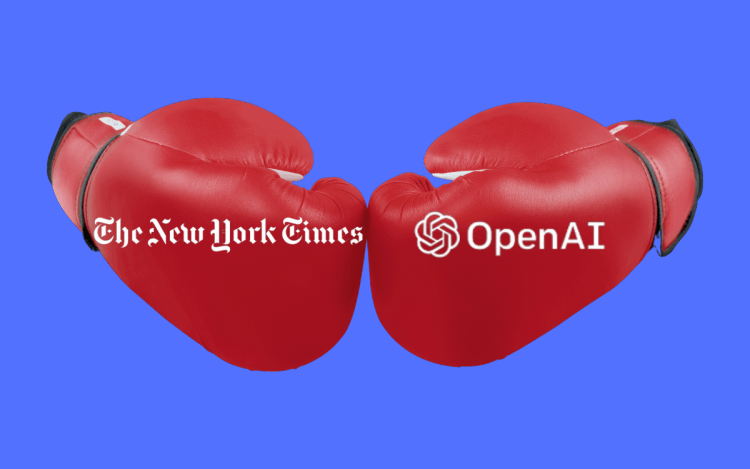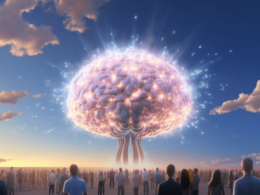No matter which side you think will win the battle, there is no doubt that the New York Times’ new lawsuit against OpenAI and Microsoft for copyright infringement, filed last Wednesday, will be one of the most important copyright fights to watch in 2024. The Gray Lady vs. the Generative AI Bros? Pass the popcorn, please.
The Significance of the Lawsuit
The lawsuit alleges that the defendants should be held responsible for “billions of dollars in statutory and actual damages” related to the “unlawful copying and use of The Times’s uniquely valuable works.” It also calls for OpenAI and Microsoft to destroy any chatbot models and training data that use New York Times copyrighted material. This case holds immense importance in the AI and copyright landscape for several reasons.
- Supreme Court Potential: Legal experts have long predicted that a case around AI and copyright could make it to the Supreme Court. A high-profile case like the New York Times vs. Microsoft and OpenAI could be the catalyst for this, leading to a landmark decision by the nine justices.
- Legal Uncertainty: The legal battles surrounding generative AI have left much room for interpretation. Different courts have the potential to arrive at different conclusions. This lack of clarity sets the stage for a significant legal showdown.
- Impact on Industries: Various industries, especially publishing and entertainment, are not adopting a wait-and-see approach. In these sectors, copyright issues related to generative AI are already being addressed. The New York Times lawsuit against OpenAI may have a far-reaching impact on similar industries grappling with copyright concerns.
Bradford Newman, a partner at law firm Baker McKenzie, stated in August 2022, “Ultimately, I believe this is going to go to the Supreme Court.”
Marc Rotenberg, president and founder of the nonprofit Center for AI and Digital Policy, echoes this sentiment. He points to the landmark case of Authors Guild v. Google, which took a decade to resolve and ultimately favored Google’s digitization efforts. Rotenberg warns that if AI models can replicate the quality of content produced by The New York Times, it could have dire consequences for the publishing industry and journalism as a whole.
Marc Rotenberg emphasized, “So to me, it’s one of the most interesting legal cases today involving AI…the looming battle between one of the most well regarded publishers, The New York Times, and one of the most impactful generative AI firms OpenAI.”
Preparation and Implications
OpenAI and Microsoft are fully-prepared to mount a strong defense in this case. Prominent attorney specializing in copyright law, who is assisting OpenAI, believes that cases involving generative AI and copyright will play a significant role in shaping the pace and contours of innovation. He highlights the importance of understanding the role of copyright law without changing it solely to protect a specific industry.
Unnamed Copyright Attorney stated, “These tools are going to continue to exist… you couldn’t put this cat back in the bag.”
It is evident that the outcome of this lawsuit will have a far-reaching impact on the future of AI and copyright law. As the battle unfolds, it will shape the legal landscape, innovation, and the delicate balance between protecting intellectual property and fostering technological advancements.










